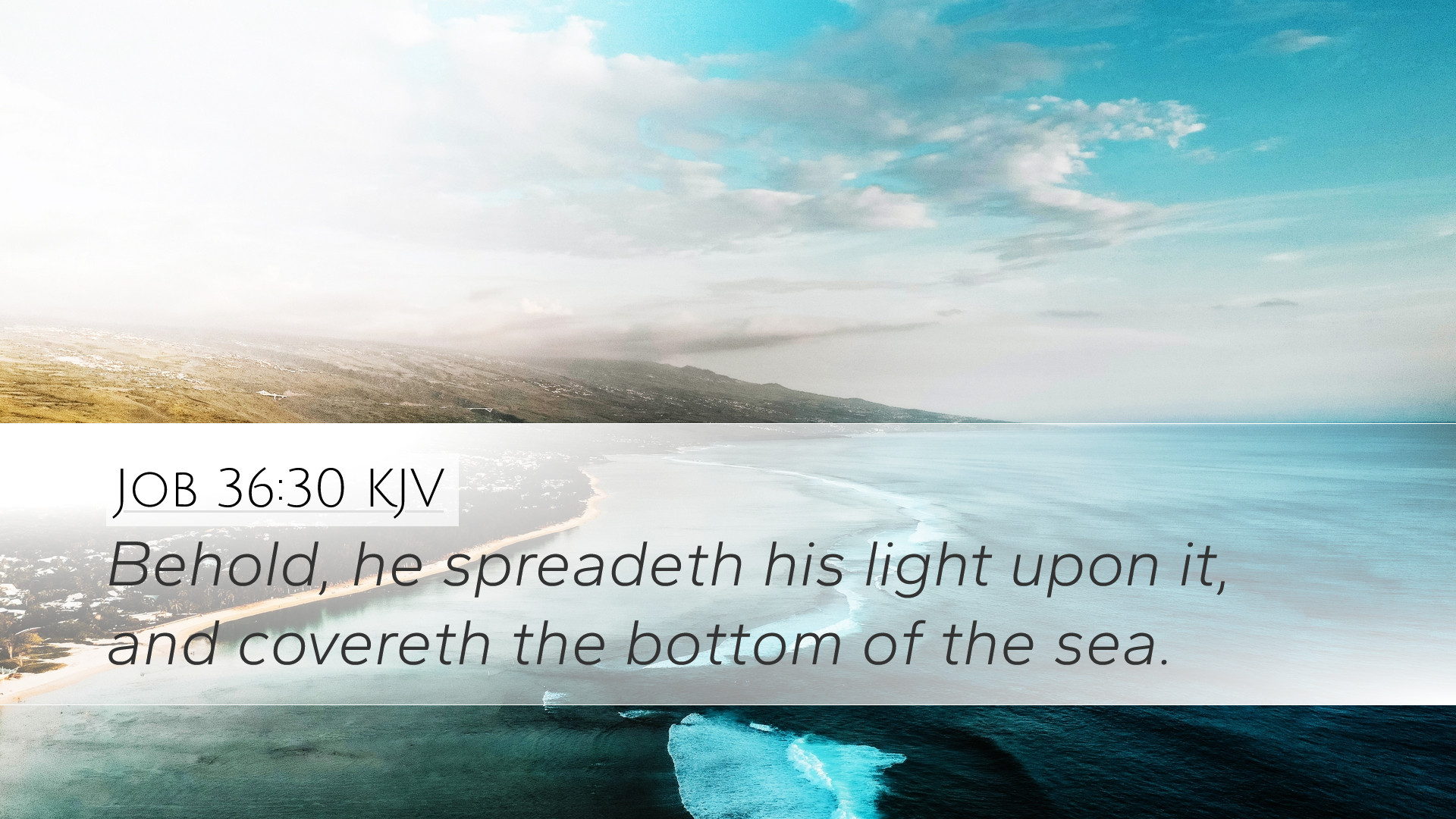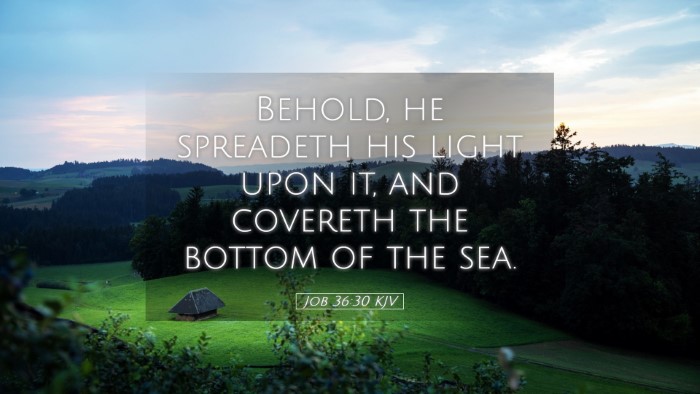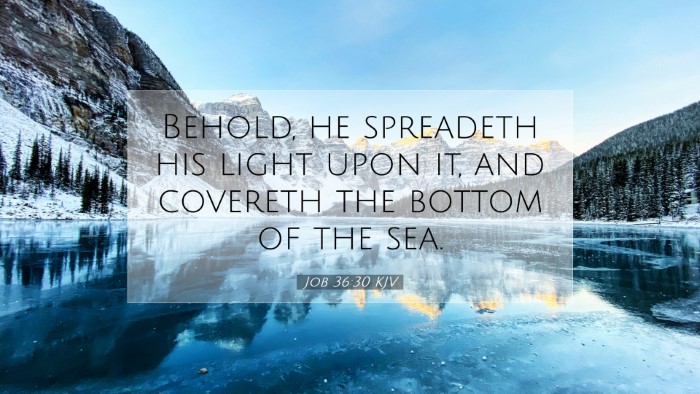Commentary on Job 36:30
Job 36:30 states, "Behold, He spreadeth His light upon it, and covereth the bottom of the sea."
This verse presents a profound reflection on God's sovereignty and omnipotence, particularly in relation to the natural world.
The image of God spreading His light signifies divine oversight and control over all creation, including the darkest depths of the sea.
This commentary synthesizes insights from notable public domain commentaries by Matthew Henry, Albert Barnes, and Adam Clarke,
providing a comprehensive understanding suitable for pastors, students, theologians, and Bible scholars.
Divine Sovereignty over Creation
According to Matthew Henry, this verse serves as a demonstration of God's supreme authority over the universe.
He emphasizes that God not only created the light but also maintains it, ensuring that it penetrates even the darkest places.
Henry argues that this reflects God’s omnipresence, indicating that not even the bottom of the sea can hide from His watchful eye.
Albert Barnes adds to this by interpreting the 'light' in this context as symbolic of God's divine wisdom and revelation.
Barnes notes that just as light brings clarity and understanding in the physical world, God’s revelation illuminates the hearts and minds of His believers,
guiding them through the complexities of life. He points out that the reference to the sea signifies the depths of human suffering and confusion,
suggesting that even in our darkest times, God is present, spreading His light.
God's Care for Creation
Adam Clarke expands on the theme of God’s active involvement in the world.
He posits that the 'bottom of the sea' symbolizes the hidden and often ignored aspects of creation.
Clarke asserts that God’s light revealing these hidden places serves as a metaphor for His providential care and oversight.
This verse reminds believers that no one is forgotten or forsaken, as God’s influence extends beyond the visible realm to every corner of existence.
Theological Implications
The theological implications of Job 36:30 are profound and multifaceted.
It invites us to ponder the extent of God's knowledge and His ability to govern creation. As noted by Henry, Barnes, and Clarke,
the imagery of light signifies purity and holiness, suggesting that God's moral character permeates all of creation.
- God's Omnipresence: Indicates that His presence is inescapable and envelops all aspects of creation.
- God’s Revelation: His light illuminates not only the physical world but also the spiritual condition of humanity.
- Encouragement for Believers: Assurance that in times of darkness and uncertainty, God's presence is still working towards our good.
- Hope in Suffering: Assurance that God sees our suffering, just as He illuminates the depths of the sea.
Practical Applications
Understanding Job 36:30 encourages believers in their daily lives, particularly in their spiritual journeys.
The following applications are essential for pastoral care, theological education, and personal reflection:
- Awareness of God's Presence: Believers should cultivate an awareness of God's omnipresence, particularly in life's challenging moments.
- Seeking Enlightenment: Engage in prayer and the study of Scriptures to invite God’s light and wisdom into our decisions and circumstances.
- Trust in God's Sovereignty: In a world filled with chaos and uncertainty, trusting in God’s sovereign plan can provide peace and hope.
- Comfort in Darkness: Find solace in knowing that even when it feels as though God is absent, His light is still illuminating our path.
- Sharing God's Light: Encourage others by sharing testimonies of God’s faithfulness and involvement in our lives, reflecting His light to those around us.
Conclusion
In summary, Job 36:30 is a powerful reminder of God's sovereign authority over creation and His intimate involvement in the lives of His people.
Insights from Matthew Henry, Albert Barnes, and Adam Clarke highlight the multifaceted implications of this verse.
Pastors, students, theologians, and scholars must grasp its significance and encourage others to look toward God as the source of light, comfort, and guidance amidst all situations.
As we reflect on this scripture, we are reminded to remain faithful and assured of God's presence in both the light and the dark times of our lives.


